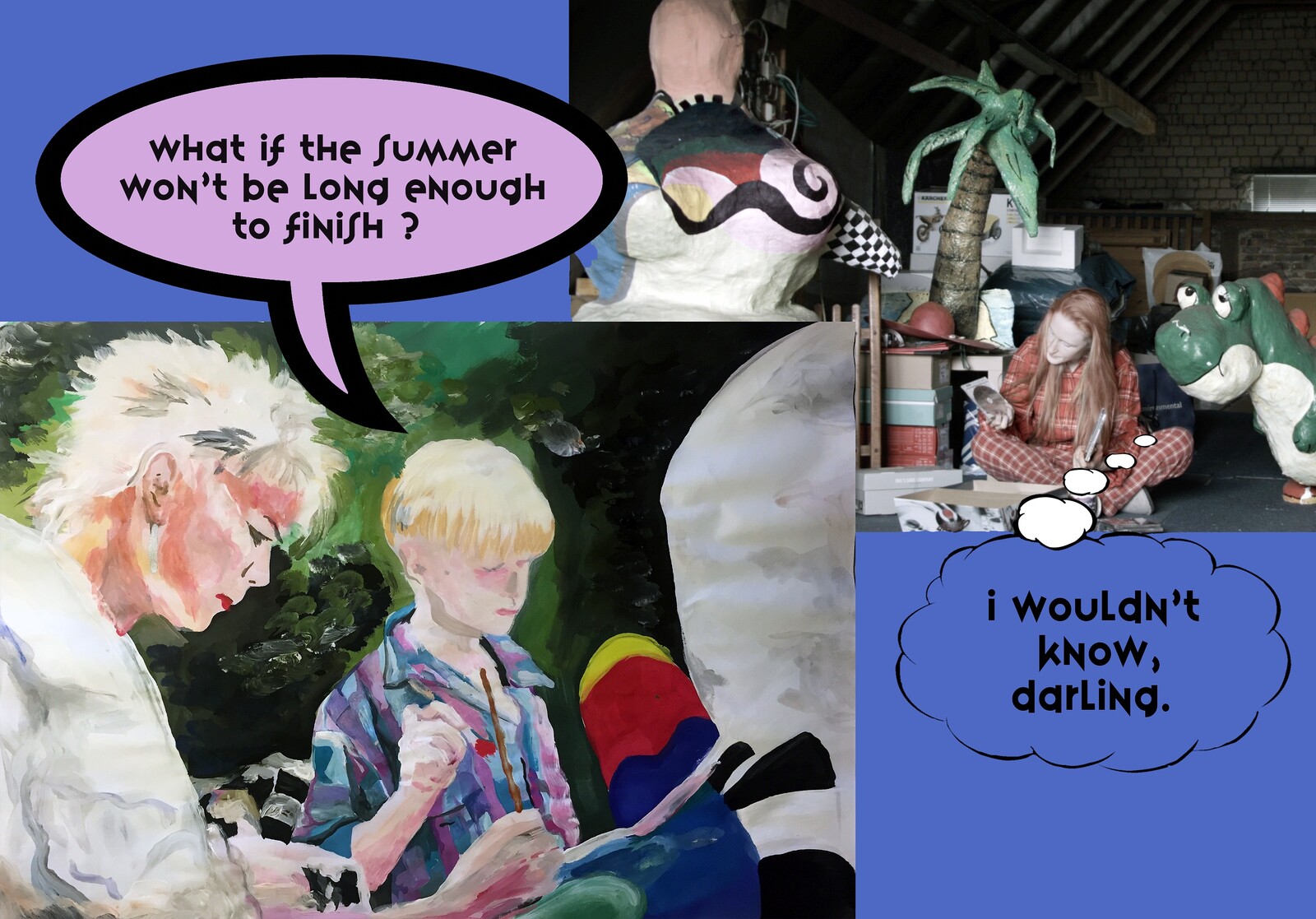Kunstverein Göttingen welcomes its new artistic director Anja Lückenkemper and looks forward to the
2016 exhibition program:
Britta Thie
dove step
January 10–February 21
Opening: Sunday, January 10
dove step by Britta Thie (b. 1987, Minden, Germany) is a “future fairytale,” a spatialized script entailing popular media, such as comic strips, as well as theoretical references. Thie smudges the boundaries between fiction and reality and weaves family archival material into the exhibition’s narrative. For dove step, she has developed a voice-over which functions as the referential frame, with its diary-like poems structuring the exhibition space. The title of the show references the minimalist, bass-heavy musical genre dubstep, which Thie counters with her soft-version dove step.
Liz Magic Laser
Identification Please
March 20–May 15
Opening: Sunday, March 20
Identification Please brings together works by Liz Magic Laser (b. 1981, New York) that focus on the construction of identity in scenarios ranging from news production to child training. Her latest video, Kiss and Cry (2015), made with child figure skaters, traces the social construction of the innocent child. Laser’s “Living Newspaper” series (2012–ongoing), which investigates the manipulation of empathy in both the production and reception of current events, will be exhibited as a multimedia installation combining photographs, video and research material. Identification Please demonstrates Laser’s visceral approach to unearthing sociopolitical constructions of self by resetting and rendering visible the underlying techniques at play.
Johannes Paul Raether
Der Wahnsinn wird unsichtbar, wenn er genügend große Ausmaße erreicht hat
June 19–July 31
Opening: Sunday, June 19
Johannes Paul Raether (b. 1977, Heidelberg, Germany) uses trickster strategies to construct new forms of identity outside of societal norms. Der Wahnsinn… presents a further iteration and display of multiple research avatars—Transformella, Protectorama and Schwarmwesen—in order to explore the emancipatory potential of “psycho-realistic” knowledge productions. The Avatara edits and arranges cultural knowledge according to the research focal point and examines its effect in the “field”—specifically the locations, institutions and public spaces which are contained within and formed by this knowledge. Excursions, field work and missions to the places of knowledge inherent in capitalist society of the 21st century invite the viewer to become part of the research process and thus question society’s delusional rationality.
Perfect Lives
August 14–October 9
Opening: Sunday, August 14
The group show Perfect Lives references the title of Robert Ashley’s eponymous television opera from 1991 and brings together artistic positions which negotiate identity via artificiality and group formations. Perfect Lives aims to depict images for possible futures, subcultures and parallel societies which can (potentially) develop out of alternative identity constructs. The presented works function as a commentary on current societal phenomenons (e.g. facial-recognition software) and are simultaneously a design for a utopian, to dystopian, future. With Trisha Baga (b. 1985, Venice, Florida), Loretta Fahrenholz (b. 1981, Starnberg, Germany) et al.
Diana Sirianni
Abgrenzung
October 16–December 11
Opening: Sunday, October 16
Diana Sirianni (b. 1982, Rome) constructs and analyzes the identity of space. For Abgrenzung, she develops and cartographs the exhibition space by reflecting on color, form and materiality of architectonic characteristics, whilst measuring the space with line, light and shadow. The work incorporates derivations and copies of previous installations and modifications thereof. Over the past few years, the artist has compiled an archive from which she draws on and elaborates. The work is never truly finished, so to speak, but instead becomes part of a new staging every time.
January 4, 2016
2016 exhibition program



